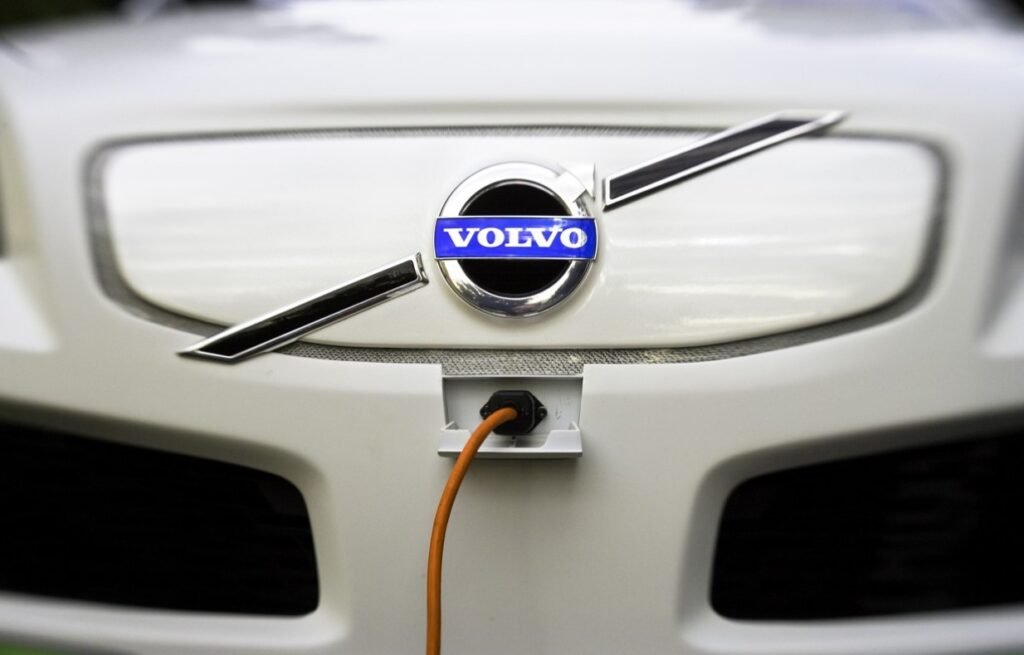The European Investment Bank (EIB) has agreed to lend €500 million to Volvo Group, the Swedish manufacturer of heavy-duty vehicles, to support its research, development and innovation (RDI) projects in electric vehicle technologies. The loan will help Volvo accelerate its transition to electromobility, safety and autonomous driving solutions, as well as improve its energy efficiency.
Volvo Group is a global leader in the production of trucks, buses, construction equipment and marine and industrial engines. The company has been investing heavily in the development of electric vehicles, especially for commercial and public transport applications. Volvo aims to offer a complete range of electric vehicles, from light-duty vans to heavy-duty trucks and buses, by 2030.

The EIB loan will support Volvo’s RDI projects in various areas, such as:
- Electric powertrain components, such as batteries, motors, inverters and chargers
- Active and passive safety systems, such as advanced driver assistance systems (ADAS), collision avoidance and mitigation, and airbags
- Autonomous driving technologies, such as sensors, cameras, lidars, radars and software
- Non-powertrain related energy efficiency improvements, such as aerodynamics, lightweight materials and thermal management
The EIB loan will also enable Volvo to collaborate with other European partners, such as suppliers, universities and research institutes, to foster innovation and competitiveness in the European automotive industry.
EIB supports the EU’s climate and innovation goals
The EIB, as the EU’s climate bank, is a major financier and catalyst for technological progress, competitiveness and RDI in Europe. The EIB loan to Volvo is backed by the European Fund for Strategic Investments (EFSI), the main pillar of the Investment Plan for Europe, also known as the Juncker Plan.
The loan is in line with the EIB’s Climate Bank Roadmap objectives and the EU’s policy priorities under Horizon Europe, the EU’s research and innovation programme. The loan will contribute to the decarbonisation and electrification of the transport sector, which is responsible for about a quarter of the EU’s greenhouse gas emissions. The loan will also support the development of safer and smarter mobility solutions, which will enhance the efficiency and sustainability of the European transport system.
EIB Vice-President Thomas Östros, responsible for Sweden, said: “We are pleased to support AB Volvo — a Swedish and global market leader in heavy-duty vehicle manufacturing — to promote a paradigm shift in innovative and clean technologies within the transport sector. Volvo’s RDI projects will bring us one step closer to a low-carbon economy. Thereby pushing the boundaries for the automotive industry in Europe to identify cleaner, safer and smarter solutions, which will benefit us all.”
President and CEO of Volvo Group Martin Lundstedt said: “The necessary transformation of the transport and infrastructure industry into sustainable solutions is urgent. We are leading the transformation today, but want to further accelerate our research and development within electromobility, safety solutions and autonomous transport solutions. With the EIB’s collaboration, this acceleration can continue.”
Volvo faces competition from other electric vehicle makers
Volvo is not the only company that is pursuing the electrification of heavy-duty vehicles. Other European and global players, such as Daimler, Scania, MAN, Tesla, BYD and Tata, are also developing and launching electric trucks and buses, with different levels of performance, range and cost.
Volvo will have to compete with these rivals in terms of technology, quality, reliability and customer satisfaction. The EIB loan will help Volvo to maintain and strengthen its position in the market, by enabling it to invest more in RDI and innovation.
Volvo will also have to cope with the challenges and opportunities of the electric vehicle ecosystem, such as the availability and affordability of batteries, the deployment and interoperability of charging infrastructure, the integration of renewable energy sources, the regulation and standardisation of electric vehicles, and the consumer and societal acceptance of electromobility.
Volvo has been working with various stakeholders, such as customers, authorities, utilities, suppliers and civil society, to address these issues and promote the adoption of electric vehicles. Volvo has also been participating in several initiatives and projects, such as the European Battery Alliance, the European Green Vehicles Initiative, and the ElectriCity project in Gothenburg, to foster collaboration and innovation in the electric vehicle sector.
